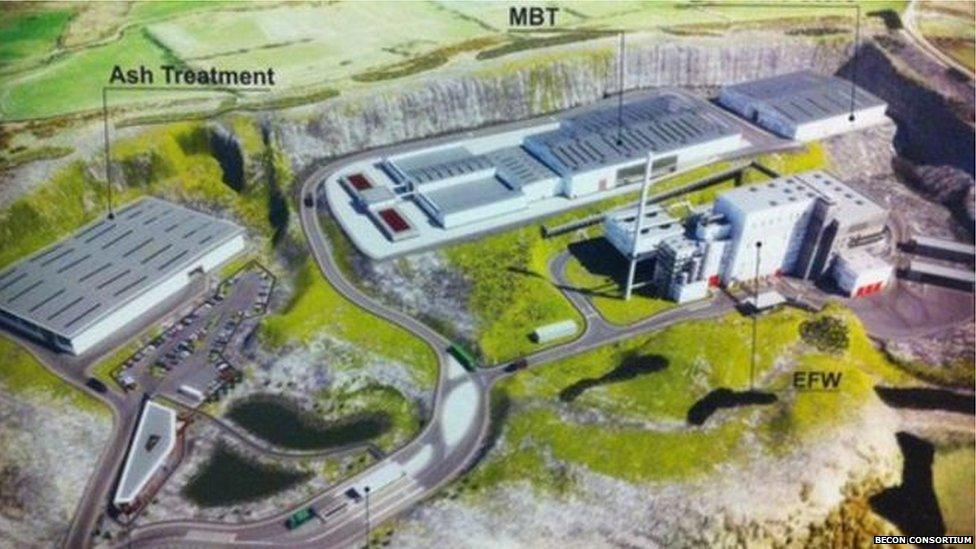Arc21: Civil servants 'in disarray' without ministers, court hears
- Published

An artist's impression of the proposed waste facility
Civil servants at Stormont are "in disarray" over their powers in the absence of ministers, the High Court in Belfast has been told.
It is hearing a legal challenge into a senior civil servant's decision to grant planning permission for a £240m waste treatment and energy plant.
The waste management firm Arc21 wants to build the plant at Hightown Quarry, near Glengormley in County Antrim.
Planning permission was approved last year, without ministerial approval.
The decision, taken by the permanent secretary at the Department for Infrastructure, is now the subject of a judicial review instigated by a local resident.
All of Northern Ireland's main political parties are opposed to the plans.
'Sir Humphrey scenario'
The judicial review has been told that the decision was inconsistent with how civil servants have acted in another high-profile case.
A barrister representing the resident who sought the judicial review quoted from a letter written by the head of the Civil Service in Northern Ireland, David Sterling on 14 December 2017.
In the letter, Mr Sterling explained that civil servants could not approve compensation for victims of historical institutional abuse without "ministerial" approval.
The barrister said this demonstrated "a marked difference" to how the Civil Service acted, in granting planning approval to Arc21, in the absence of "ministerial direction".
He said this amounted to "supplanting democratic control" in what he compared to a "Sir Humphrey" scenario - referring to a character from the TV comedy show Yes Minister.
However, a barrister representing the Department for Infrastructure said a failure to allow officials to make decisions, since the collapse of the Northern Ireland Executive last year, would have resulted in "a shutdown of government".
He pointed out that legislation at Stormont gives officials power to make decisions on planning matters.
The barrister said the judicial review is "a case of some constitutional importance".
- Published15 September 2017

- Published13 September 2017
